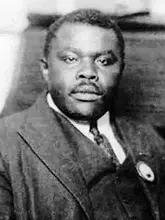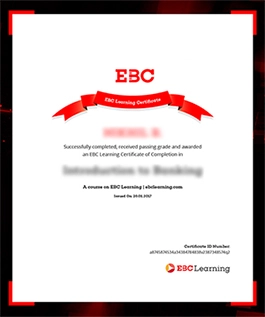Traditional Knowledge and Traditional Cultural Expressions
In a world brimming with innovation, safeguarding the knowledge passed down through generations is crucial. This self-paced course by EBC Learning delves into the fascinating realm of Intellectual Property Rights (IPR) for Traditional Knowledge (TK) and Traditional Cultural Expressions (TCEs).
Our ancestors have accumulated a wealth of wisdom on sustainable living, well-being practices, and environmental stewardship. This course equips you to understand the mechanisms available to protect this invaluable heritage.
The course helps you explore four key avenues:
1. Existing IP Systems: Copyright, patents, and trademarks can offer some protection for certain aspects of TK and TCEs.
2. Sui Generis Systems: Designed specifically for TK and TCEs, these new legal frameworks provide targeted protection.
3. Defensive Protection: Strategies to prevent outsiders from illegitimately acquiring IP rights over TK and TCEs will be a key focus.
4. Positive Protection: Explore how communities can leverage IPRs to control the use of their TK and TCEs, and potentially benefit from their commercial exploitation.
Through engaging video lectures by expert Mr Rajesh Ramanathan, you will gain a comprehensive understanding of the challenges and opportunities in protecting TK and TCEs.
Case studies like the Turmeric and the Neem Patent controversies will shed light on real-world scenarios. The course will also help you analyse the role of international efforts and delve into India's initiatives like the Traditional Knowledge Digital Library (TKDL) and the Biodiversity Act.
Learn more by joining us on this enriching journey to discover the power of IPRs in protecting the timeless wisdom of traditional knowledge and cultural expressions. Enrol today!

A people without knowledge of their past history, origin and culture is like a tree without roots.
Marcus Garvey- 1. 📕 Introduction
- 1.1 ▸ Introduction to traditional knowledge and intellectual property
- 2. 📕 Definitions of traditional knowledge in Indian laws
- I. § Relevant provisions
- 2.1 ▸ Definitions of traditional knowledge
- 2.2 ▸ Biopiracy
- 2.3 ▸ Characteristics of traditional knowledge
- ☆ Feedback
- 3. 📕 Traditional cultural expressions
- I. § Relevant provisions
- 3.1 ▸ What are traditional cultural expressions?
- ✒ Activity
- 4. 📕 Protection of traditional knowledge and traditional cultural expressions
- 4.1 ▸ Protection of traditional knowledge and traditional cultural expressions
- 4.2 ▸ Sui generis protection
- 4.3 ▸ Defensive protection
- 4.4 ▸ Positive protection
- 5. 📕 International efforts & measures to protect Traditional Knowledge and Traditional Cultural Expressions through IP
- 5.1 ▸ Relevant international and regional instruments/processes
- 6. 📕 Protection through Intellectual Property Rights
- I. § Relevant provisions
- 6.1 ▸ Protection through Intellectual Property Rights
- 6.2 ▸ Existing policy and challenges in implementation in India
- 6.3 ▸ The Forest Rights Act (FRA), 2006
- 6.4 ▸ The Protection of Plant Varieties and Farmers’ Rights Act, 2001
- 7. 📕 Conclusion
- 7.1 ▸ Conclusion
- 📚 Compulsory Readings
- 📚 Compulsory Readings
- ✒ Exercises
- I ✒ Exercises
- II ✒ Exercises
- III ✒ Exercises
- IV ✒ Exercises
- 𝍭 Index (full text of leading cases)
- 𝍭 Full Text of Leading Cases
- ☆ Feedback
Why Take This Course?
1. To understand the interface between traditional knowledge, traditional cultural expressions and intellectual property rights.
2. To explore the mechanisms of protecting traditional knowledge and traditional cultural expressions.
3. To appraise the international efforts & measures to protect TK and TCE through IP.
Instructors

Rajesh Ramanathan
Partner Factum Law
Rajesh is an advocate with over 28 years of experience in national and international commercial dispute resolution. His areas of expertise are IP and related services, including prosecution and transactional, contentious and non-contentious litigation. Earlier, Rajesh headed the IP law practice of a reputed national firm. He has also been in charge of the Southern Indian operations of a leading IP firm as its senior associate. Rajesh has vast experience in litigation, prosecution, anti-counterfeiting and anti-piracy operations and transactional services. Rajesh is an alumnus of the Franklin Pierce Law Center (now the Franklin Pierce Center for Intellectual Property at the University of New Hampshire School of Law, Concord, New Hampshire).

Indigenous people are a solution, we are not only a victim of climate change.
Hindou IbrahimCertificate
Complete this course and exercises to earn a certificate. Share it with your friends, colleagues, and employers.*
*You must Subscribe to get a certificate.

Limit Reached or Trial Expired
You have reached the limit of 2 audit enrollments or your trial period has expired.

